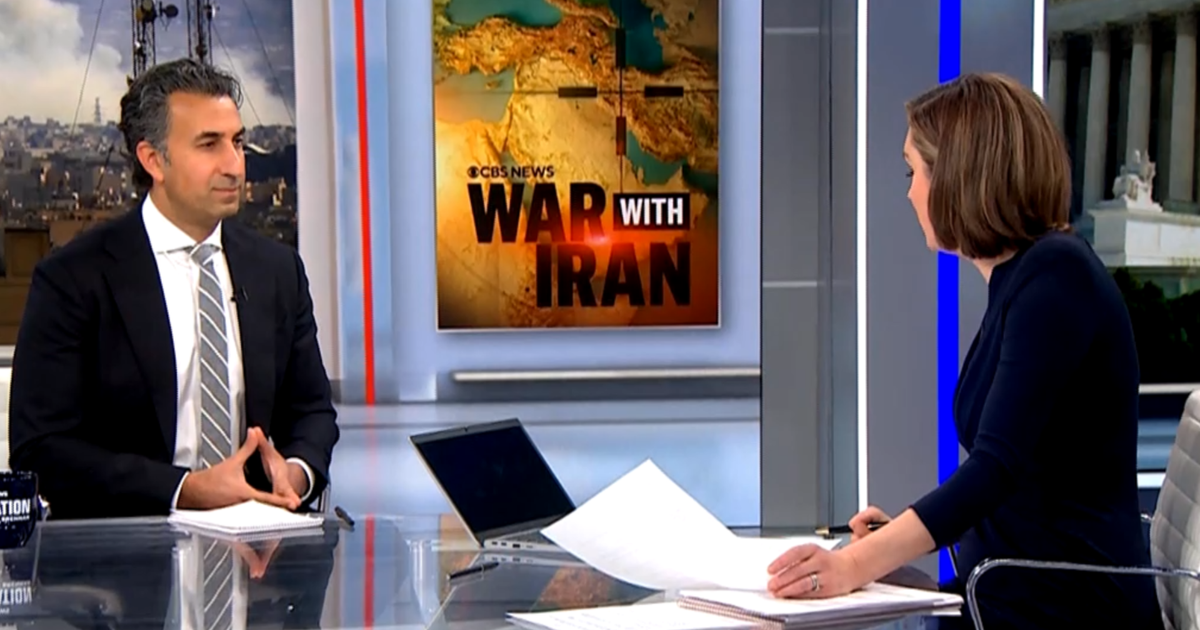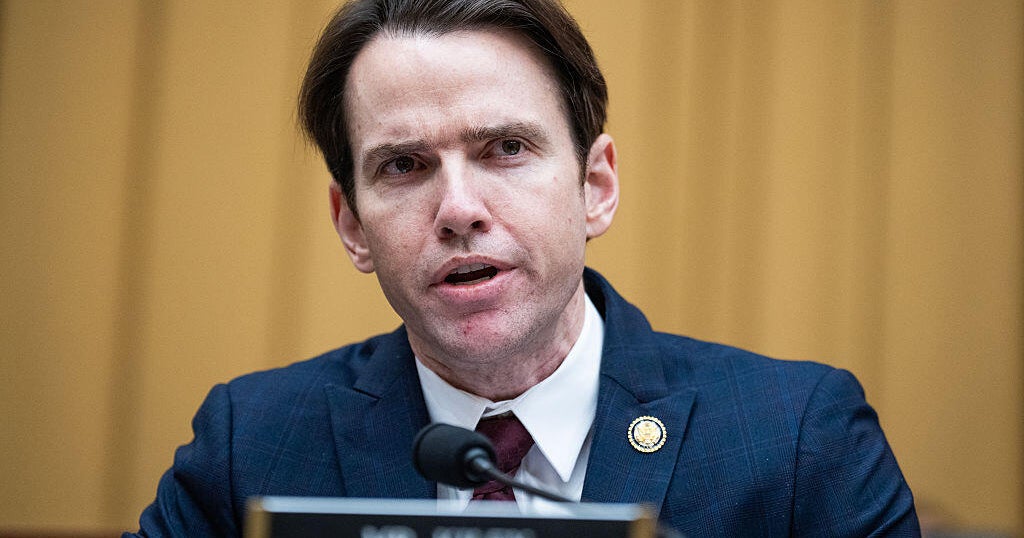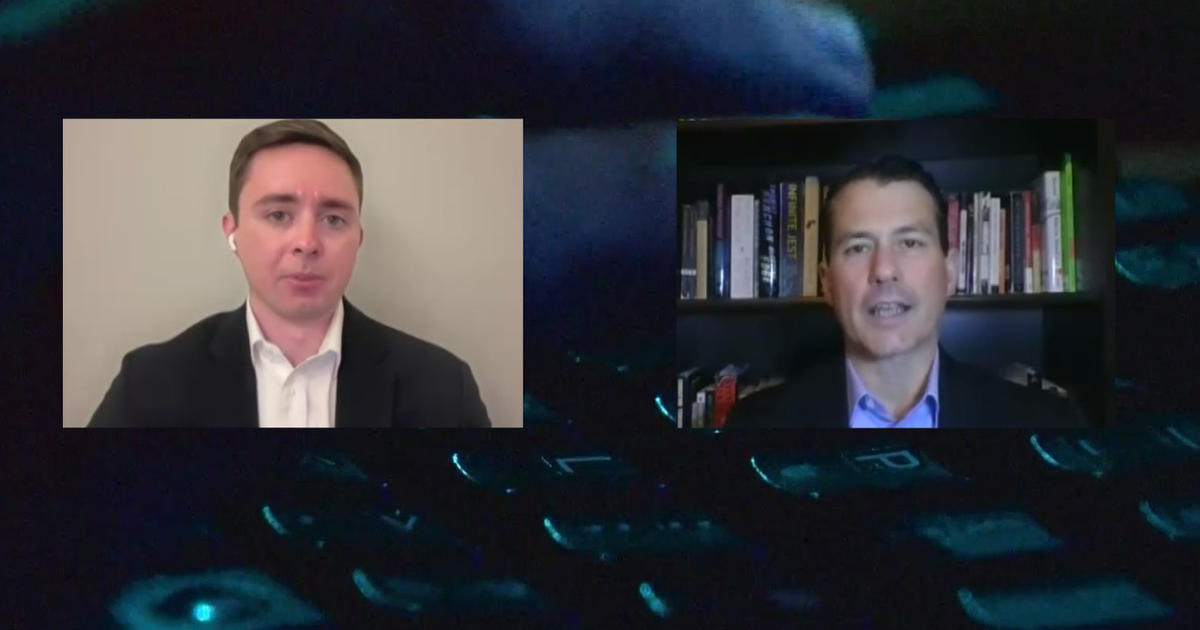Transcript: Representative Adam Schiff on "Face the Nation," June 20, 2021
The following is a transcript of an interview with Democratic Congressman Adam Schiff of California that aired Sunday, June 20, 2021, on "Face the Nation."
JOHN DICKERSON: We begin today with the chairman of the House Intelligence Committee, Congressman Adam Schiff. Good to have you here in person.
REP. ADAM SCHIFF (D-CA): Yes, thank you.
JOHN DICKERSON: It's a rarity, but hopefully one that won't be so rare in the future. Let's start with cyber attacks. There's been a lot of cyber activity— recently the Colonial Pipeline, the largest in the country, the largest meat producer. How good is our intelligence in understanding and knowing the scope of these threats?
REP. SCHIFF: Well, our intelligence is very good, but it's not predictive. So we seldom have insight about who's going to attack us and when, when it comes to these ransomware attacks. But we're pretty good at developing attribution. But of course, that doesn't prevent the injury from taking place. I do think that a lot of these hacking groups operating on Russian soil, some of them operating on Chinese or Iranian soil, they have a synergistic relationship with those states, which means we need to hold those states accountable for what these criminal gangs do to attack our industry.
JOHN DICKERSON: How well do we really know where these are coming from? Because the relationship that you talk about, that synergistic relationship, might be the pretext for retaliatory action. So how- how well do we really know this is emanating from Russia and China?
REP. SCHIFF: Well, enough to both take action to disrupt these attacks, disrupt the financing of these attacks and the- and the remuneration that they earn from these ransomware efforts, but also to hold these nations accountable. And I think we need to develop an international rule of the road where if a nation doesn't take action against cyber groups operating on its soil, we hold that nation responsible, which means we sanction that nation, which means we use that nation's resources to indemnify against any losses.
JOHN DICKERSON: So it's not credible for the Russians, for President Putin to say, oh, I don't know.
REP. SCHIFF: No, it's not at all credible. It's also not credible for him to suggest that- that even if he knew they were operating on his soil, that he was powerless to do something about it. These criminal actors don't go after the Russian oligarchs. They don't go after the Russian state or Russian industry because they know they'd end up in a gulag somewhere.
JOHN DICKERSON: So they have easier local targets they could hit, but they don't hit them?
REP. SCHIFF: Absolutely.
JOHN DICKERSON: So I'm interested in something President Biden said he asked the Russians to, in the meeting with President Putin, to ask the Russians to imagine what could happen if a ransomware outfit, as he called it, "sitting in Florida or Maine, took action to disable a Russian oil pipeline." It sounded a lot like the president was saying, that's a nice pipeline you got there. Shame if something should happen to it.
REP. SCHIFF: I'm not sure that was exactly what he was suggesting. But I do think when he was saying Putin understands we have tremendous cyber capabilities. He was sending a message, we won't hesitate to use them if we need to to protect our industry and to protect our government. And that's an important message to send. I think a big point of the purpose of this summit was for Biden to say, here are some of my red lines and don't expect to get a pass.
JOHN DICKERSON: As you look at the entire effort to stop these cyber attacks, you mentioned that we have pretty good ability to tell who did them or to chase after the person who did them. The president has asked companies to harden their targets. Is there a way in which intelligence now has to go on the offense or go on the offense even more than it has in this area? And if the U.S. is on offense in the cyber realm, does that mean we're entering an age of greater volatility?
REP. SCHIFF: I think we do have to go more on offense. And I- I think that means that when we identify cyber groups that are working in conjunction with foreign states, that we treat them as an arm of the state and that we use our cyber capability to destroy or disrupt the infrastructure they're using to raid whatever funds they're accumulating from these attacks. Does that, you know, yield to greater instability? Very possibly, because we would be taking action against foreign parties. But look, this is happening. It's been happening for years and years. And what we have been doing thus far hasn't worked. One of the hospitals in my district was ransomware-attacked years and years ago. And by then it was a pretty paltry amount in Bitcoin that they were required to pay. But since then, the amounts have gone up. Since then, the sophistication of these groups has increased. They're outsourcing some of their technology. And unless we get more serious both about our defense, which has to be number one, but also our offense, we're going to see more of this.
JOHN DICKERSON: Going back to a conversation we used to talk about, which was another way in which Russia was destabilizing the United States, which was misinformation, we talked a lot about that in the past. But update us on- are they still meddling in our social media, still spreading prop- propaganda. What's the state of Russian meddling in the propaganda front?
REP. SCHIFF: They are still meddling. They are still trying to sow division and discord. I think that they may have been deterred somewhat from crossing further lines during the last presidential election because they recognized that were Joe Biden to be elected, they would pay a price for it and they have. But that doesn't mean that they won't intervene in the next election. I think that we can expect they will use certain tactics like social media to help favored candidates. But I do think they'll be a little more risk-averse when it comes to very overt things like hacking institutions, dumping documents. They have to know that that would prompt a very serious response from this president, unlike what we had over the last four years.
JOHN DICKERSON: Speaking of elections, there was a new one in Iran, a hardliner elected. What did you- what did you make of that outcome?
REP. SCHIFF: What I thought was most interesting- and the outcome was predetermined. But what struck me was the fact that this was, I think, the lowest turnout in an Iranian presidential election, perhaps in history. Iranians voted with their feet by not showing up at the polls. And millions who did show up to the polls cast white ballots- that is they didn't check off a candidate for president. It was a protest vote to say you have essentially stripped of- us of any choice of a more moderate leader, and instead it's just ratifying who the supreme leader wants. So that to me was significant. It was a protest vote.
JOHN DICKERSON: And do you think that will have any impact on our relationships with Iran?
REP. SCHIFF: Well, I think that- that we have a window of opportunity to re-enter the JCPOA before Raisi takes office. There are- there are advantages to Iran and to Raisi to having that deal if it's going to be made, if the supreme leader is going to bless that, to have that done on Rouhani's watch so that if it goes well, Raisi can take credit. If it goes badly, they can blame the prior regime. So I do think this gives us a window of opportunity now. But in the future, it looks like hard-line Iranian politics and world positioning for the foreseeable future.
JOHN DICKERSON: In the last minute or so we have left, I want to ask you about something that affected you personally. The Department of Justice under the Trump administration subpoenaed your email records. What's the latest on that?
REP. SCHIFF: This is something I found out from Apple a month ago. And that's one issue- I had to hear from Apple and not the Justice Department about what had gone on in the last four years. The inspector general is doing an investigation. I talked with the attorney general about going beyond that. I think he really needs to do a wholesale review of all of the politicization of the department over the last four years. What happened to our committee, what happened to members of the press, that's just a subset. The direct intervention by the president and the attorney general in specific criminal cases implicating the president, like that of Roger Stone, one of his aides whose sentence was reduced before he was pardoned, Mike Flynn, another presidential national security adviser whose case was made to completely go away. These are gross abuses of the independence of the Justice Department, and we don't know how far they- they run. And our new attorney general has to find out.
JOHN DICKERSON: All right, Congressman Schiff, we're out of time. Thank you so much for being with us.
REP. SCHIFF: Thank you.
JOHN DICKERSON: And we'll be back in 60 seconds with Dr. Scott Gottlieb.



